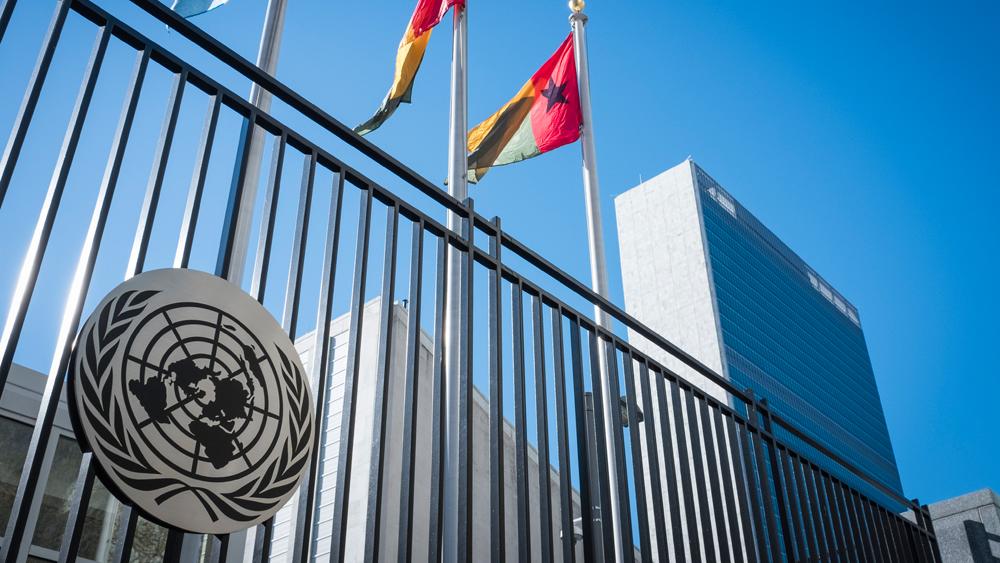Remarks to the Press by Permanent Representative Vassily Nebenzia regarding the Cross-Border Assistance Mechanism
Q.: What are the latest developments around UNSC draft resolution on humanitarian deliveries to Syria?
A.: It is time we should think of what will come after resolution 2165 expires, if anything is to come at all. So-called humanitarian penholders of the Security Council (Belgium, Germany, Kuwait) have put forward a draft resolution that has little to do with the real situation on the ground or with the goal proclaimed. Such resolution should be about either extending or not-extending cross-border operations, whereas this one is about everything, which makes it look more like a Christmas tree. It repeats points that in September led to a situation where we had to block another so-called “humanitarian resolution”.
We have never been really enthusiastic about such thing as cross-border humanitarian operations, because it runs counter to basic UN principles of providing humanitarian assistance. Nevertheless, we went for it, because we had understanding that against the background that existed in Syria, such method of delivering humanitarian assistance to those who needed it was necessary. Now things have changed. The government of Syria is in control of the major part of the territory. Humanitarian assistance is delivered as per usual procedure – with consent of Damascus. Out of four crossings for this cross-border assistance, only two are really used. We realize that there is a part of Syrian population, in Idlib in the first place, that still needs humanitarian deliveries, which, among other aspects, has to do with winter that will come soon. Probably, at this moment these so-called “cross-border deliveries” are the easiest way those who need aid can get it. Based on these and other humanitarian considerations, we have put forward our draft resolution that proposes to extend this mechanism for another 6-month term.
According to our draft, only two crossings out of four (those that are most demanded) should continue to operate. The draft also steps up accountability, because we used to have problems with that. We could not always get the “what” “how” and “whom” information regarding this cross-border assistance. Quite often, we encountered situations, when we learned that assistance had not ended up in the hands of people who needed it. In our draft resolution, we cut off everything that does not relate to the need to renew the mechanism. We left only this most important element. The draft was put forward yesterday, now there are informal consultations on it.
We have just met with our Security Council colleagues to discuss that matter. We have stressed that what we need now is to renew the mechanism rather than argue about our visions of Syria’s political future and the situation on the ground. This resolution should not fall prey to our political contradictions. On our part, this whole story was a compromise, because we do not find this cross-border humanitarian assistance very inspiring, to put it mildly. I hope before the current resolution expires, we will be able to adopt this simple crystal clear resolution that will extend the activity of the cross-border mechanism for another half a year. Then, in six months, we will see where we are, what has happened on the ground in Syria, what routes of humanitarian deliveries will be most suitable to get aid to those who will still need it.
Q.: The idea with five crossings – was it proposed by the penholders?
A.: Yes. I will soon meet with co-authors of this resolution to continue the talk I have had with other colleagues.
Q.: How was your conversation with the colleagues at the Council? How did they meet your idea?
A.: They have their own considerations which do not fully coincide with ours. Generally, they had understanding for the need to adopt a resolution that will focus on main humanitarian problems rather than political aspects of settlement in Syria.
Q.: If Russian resolution does not pass, will Russia veto the other draft?
A.: Draft resolution put forward by the co-penholders is unacceptable and inviable. They must understand this. I believe not only them but other UNSC members also realize it. If it so happens that our draft does not pass, this will mean that the mechanism that we have proposed to extend will not be extended. Who will win from it? I do not know. It would then show that this was a political game rather than real humanitarian care about the Syrian population.
